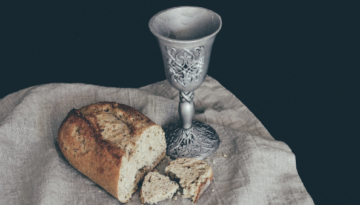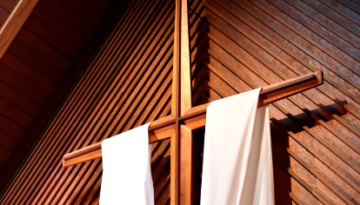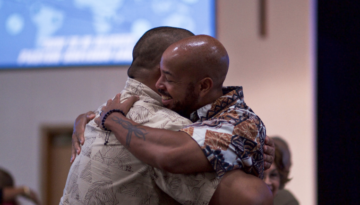More On Our Liturgy
Holy Communion / The Lord’s Supper
Why do we celebrate Holy Communion weekly? A communion service is normal Christian worship. Holy Communion is not “an add on.” From the original Lord’s Supper in the New Testament, and from the earliest church period, the Divine Service or Service of Word and Sacrament, constitutes the normal worship of the church on the Lord’s Day. However, this does not mean that everyone must receive the Sacrament each Sunday.
Even if only a few people attend the table, the liturgy of the sacrament constitutes the church’s great sacrifice of praise and thanksgiving: “Let us give thanks to the Lord: it is right to give Him thanks and praise.” Nevertheless, it is the Lord himself who provides the greatest motivation: his invitation to sinners, his giving of himself, his gracious command to ”Do this remembrance of me” – all of these draw us to His table.
As with any shared meal, part of that meal includes the surroundings and conversation that goes with it. Likewise, while the Words of Institution and the reception of Christ’s body and blood are central and always effective, they are not the only things that constitute Holy Communion.
In our liturgical tradition, the celebration of the sacrament begins with the Preface, includes the Sanctus (Holy, Holy), the Eucharist (Thanksgiving) Prayer, the Lord’s Prayer, the Lamb of God, and conclude with a Post-Communion thanksgiving and prayer. All these together make up the church’s table conversation around our Lord’s meal, a conversation which we share with Christians of all ages, (and with the angels and all creation), while at the same time anticipating our Lord’s return to share with us the eternal feast of heaven. Amen, come, Lord Jesus.
Pastor Darryl




